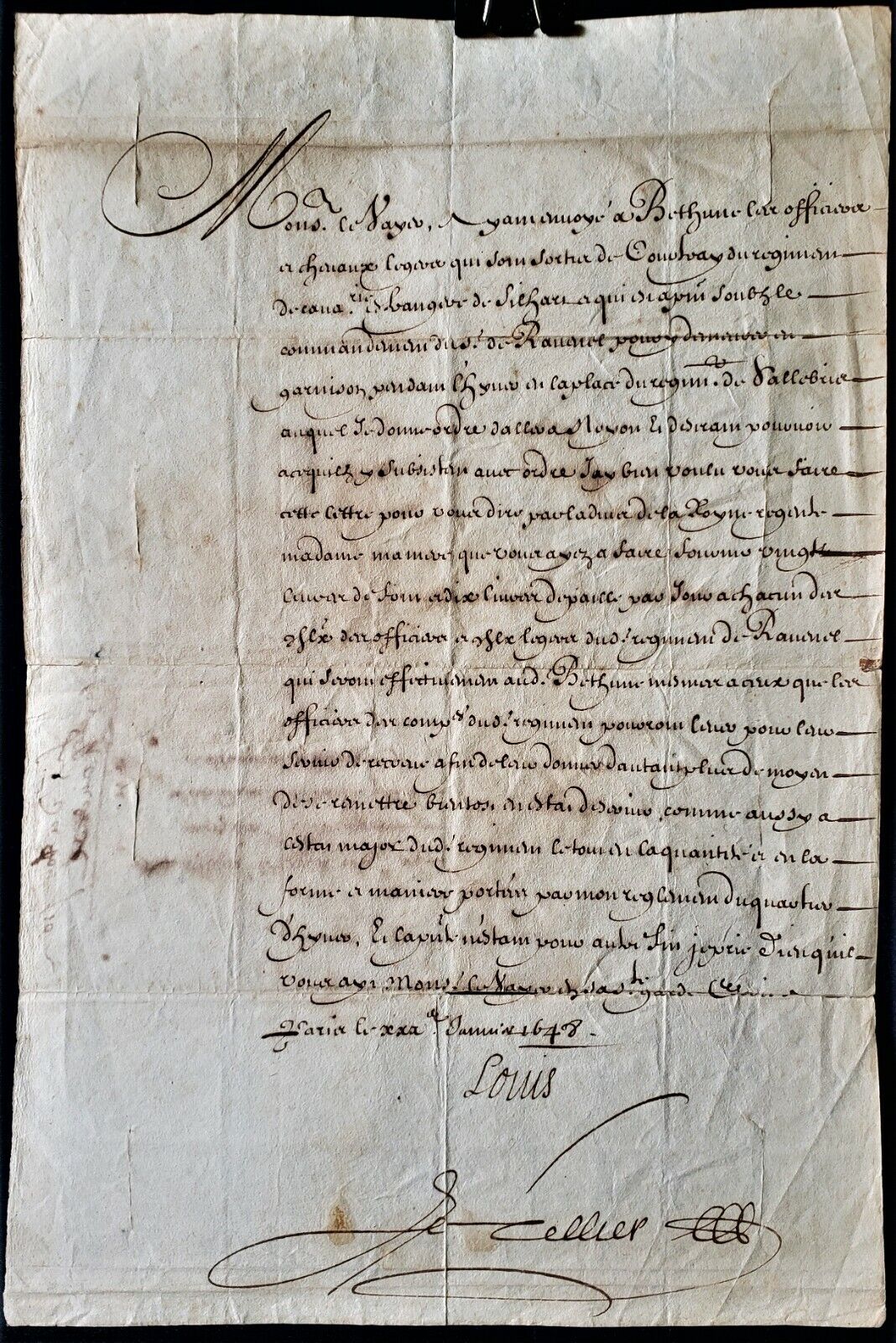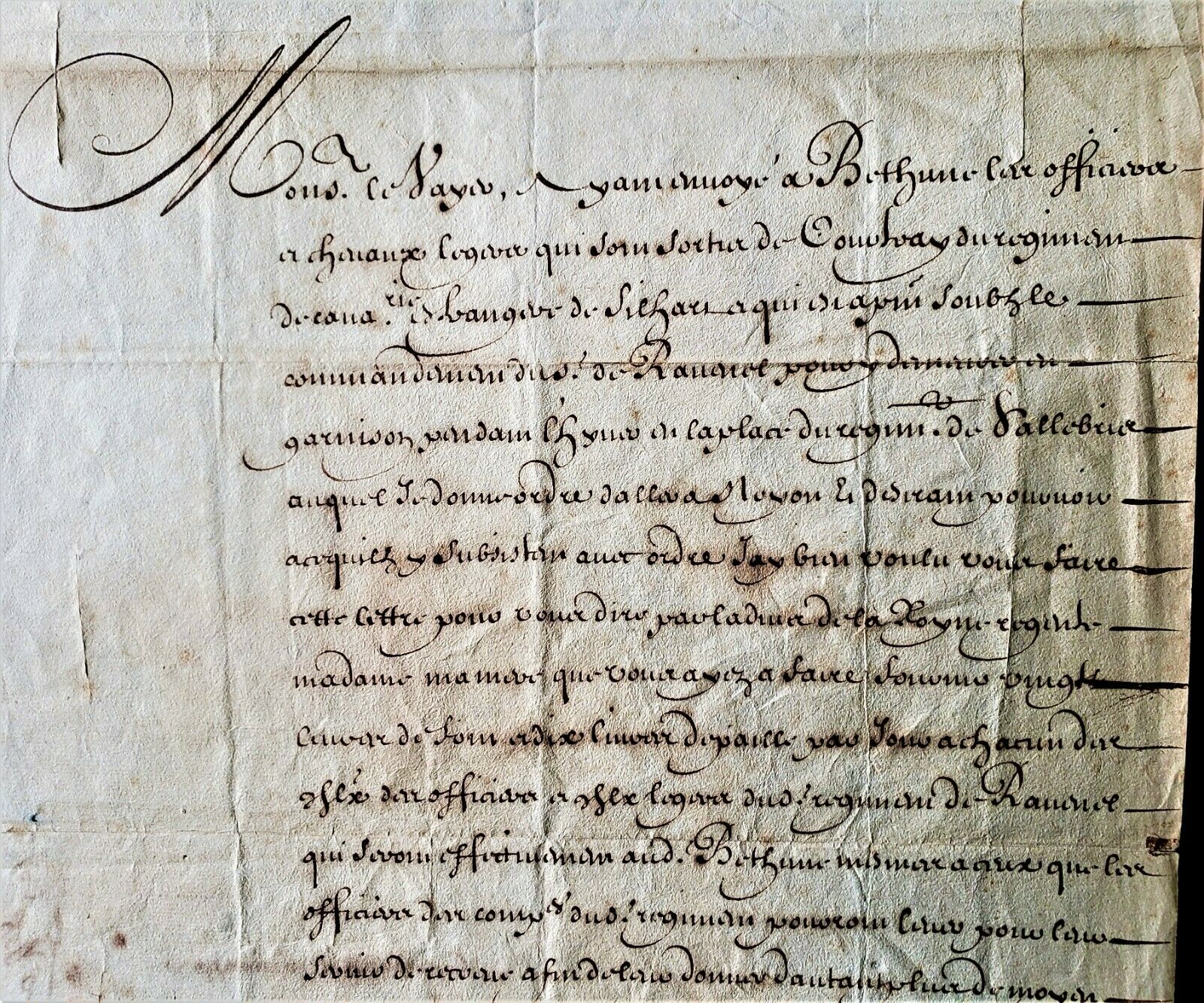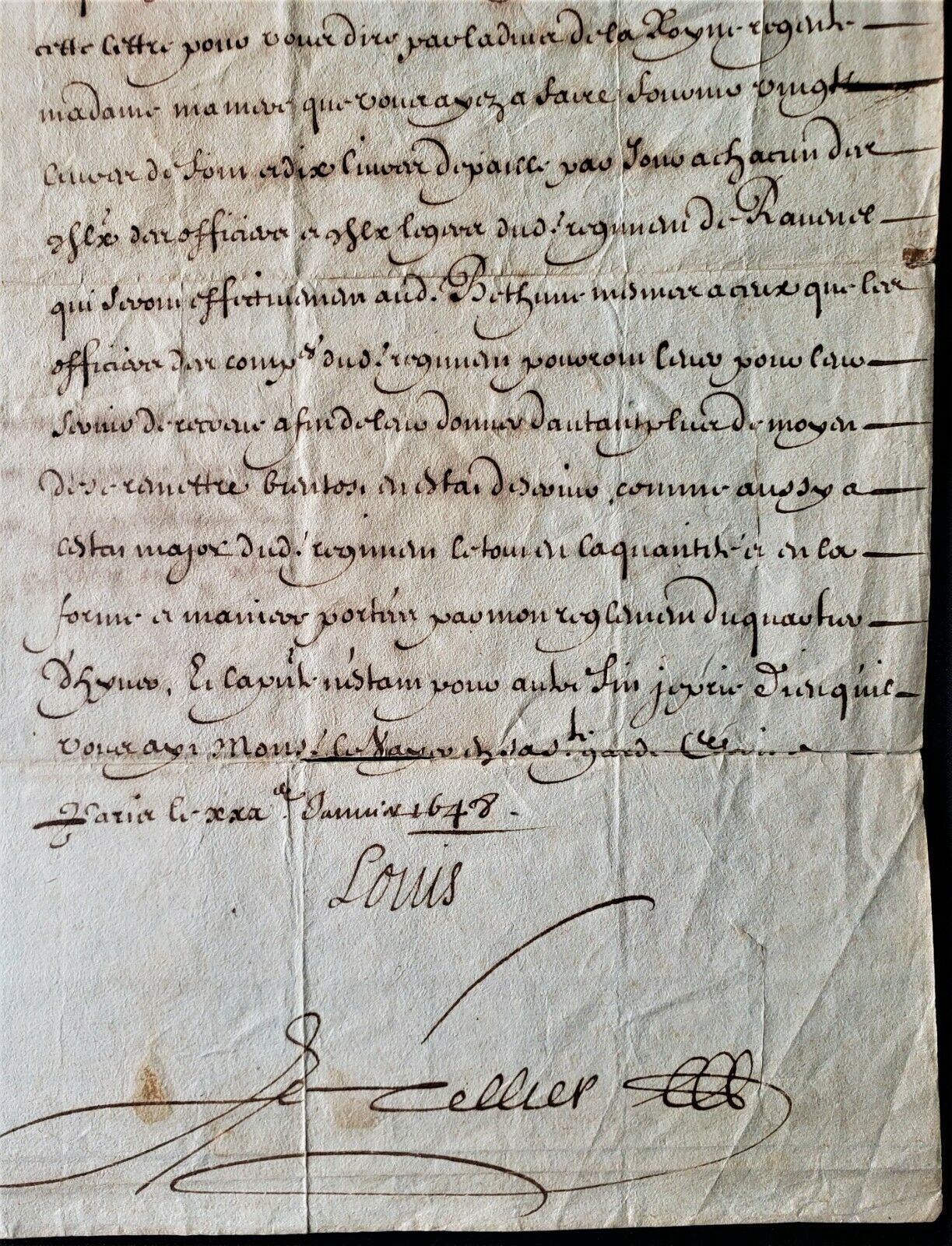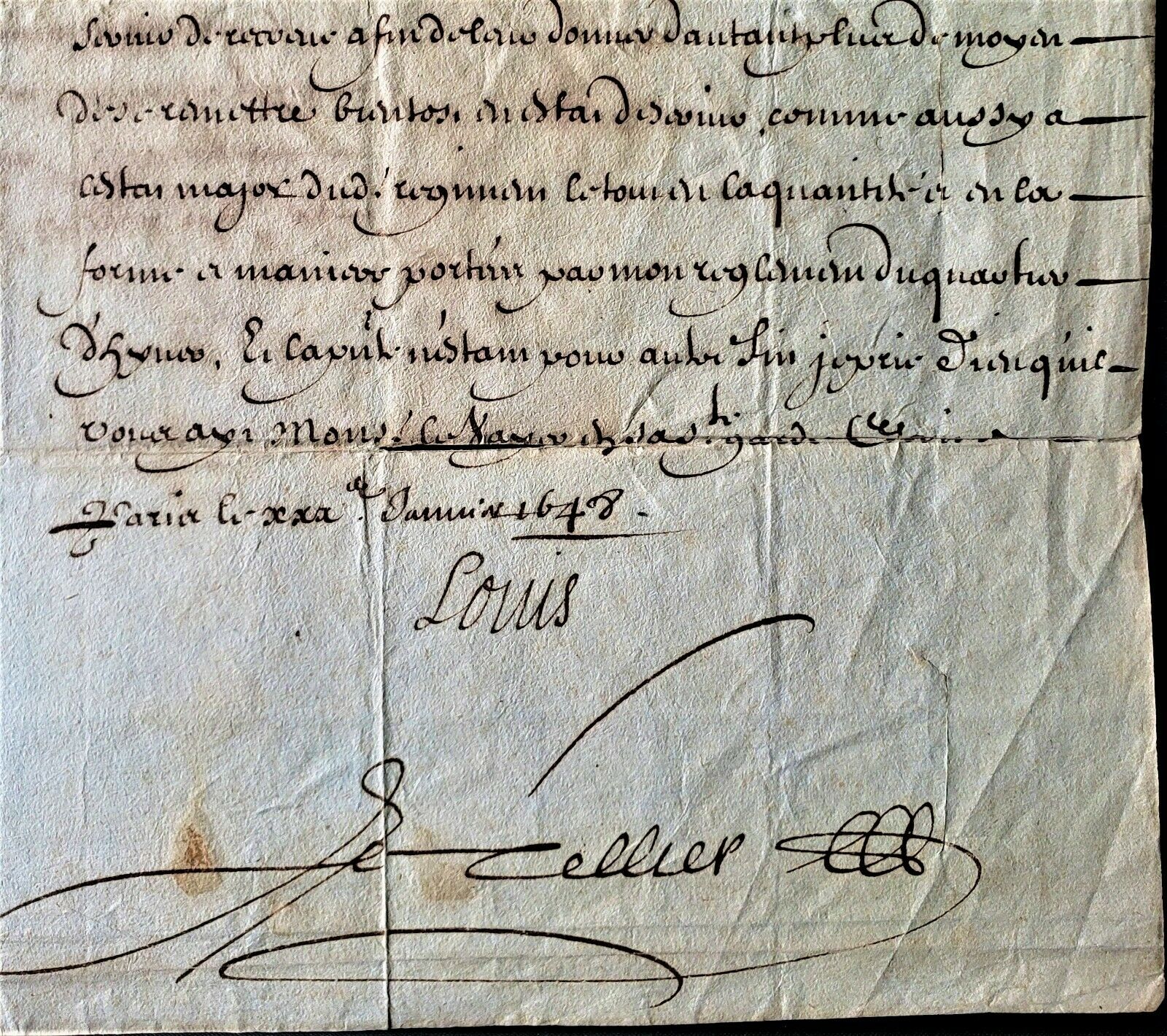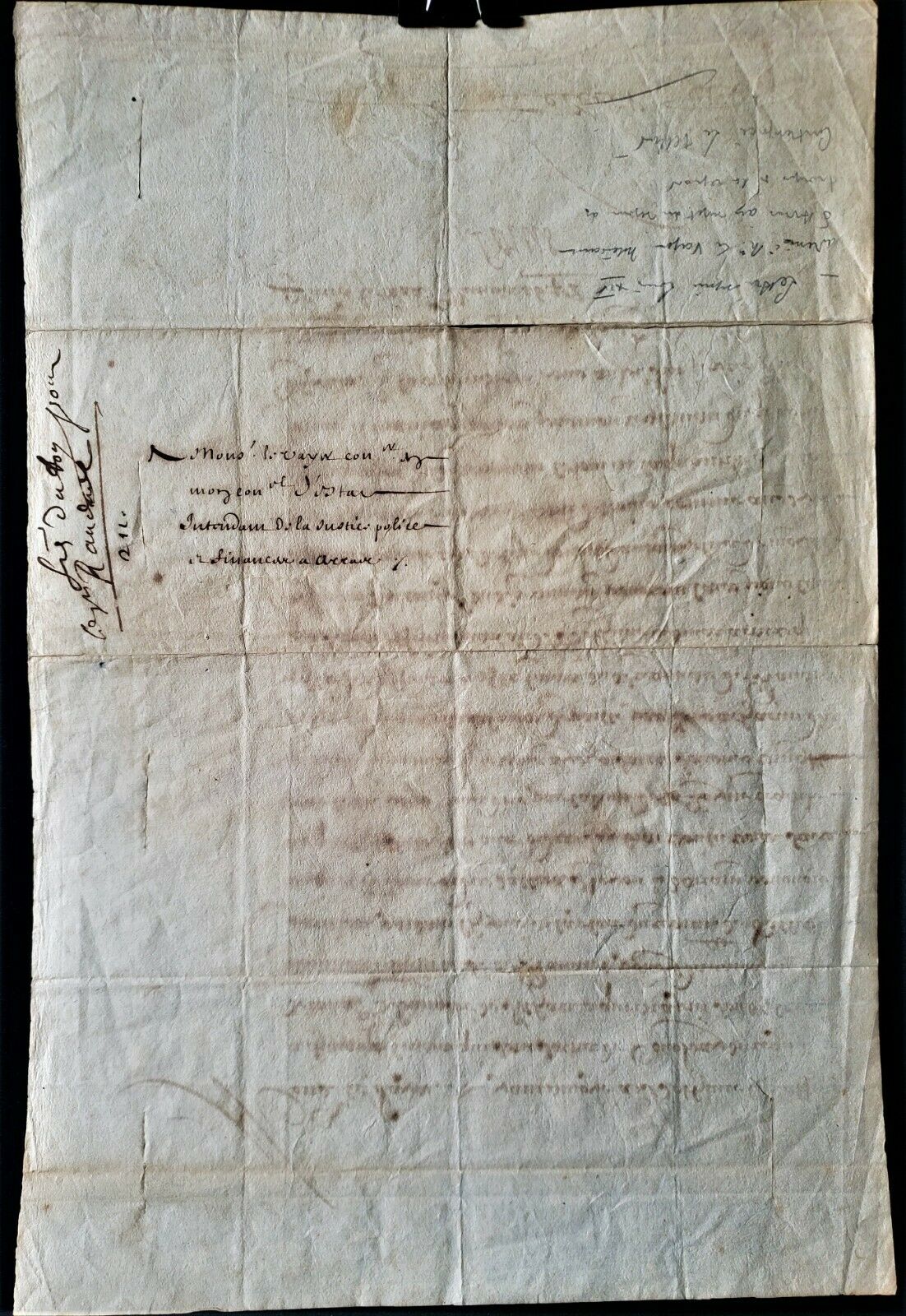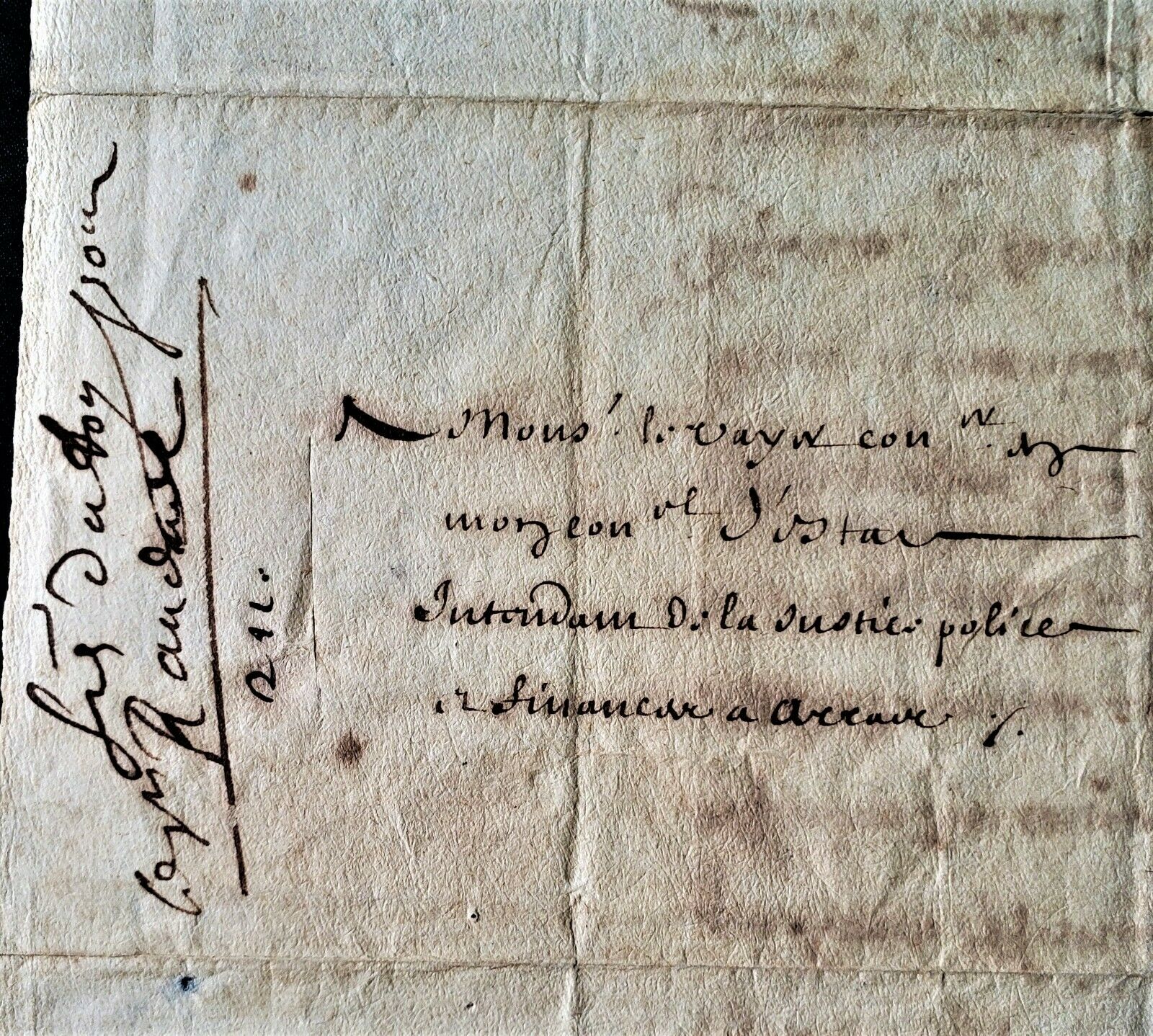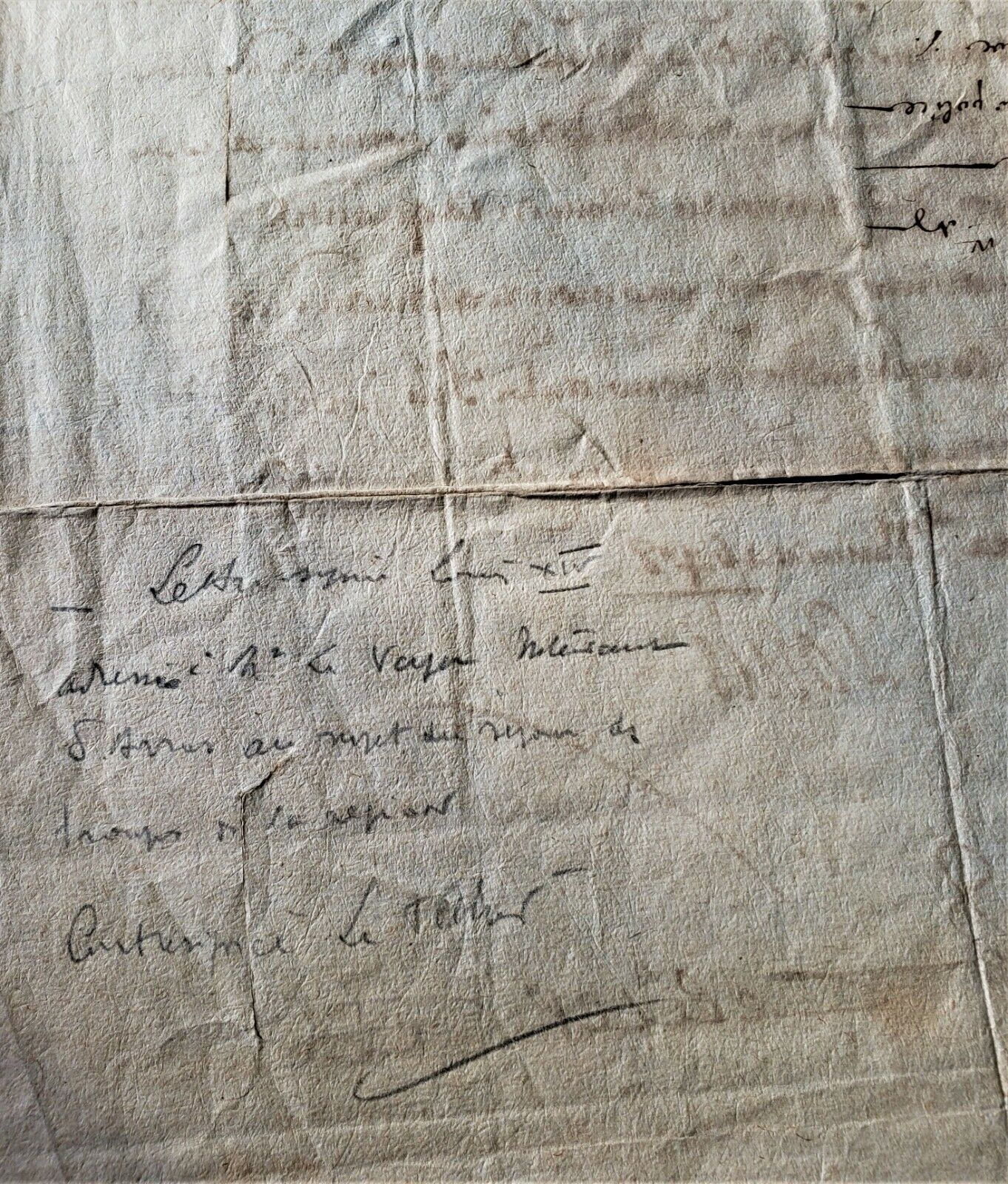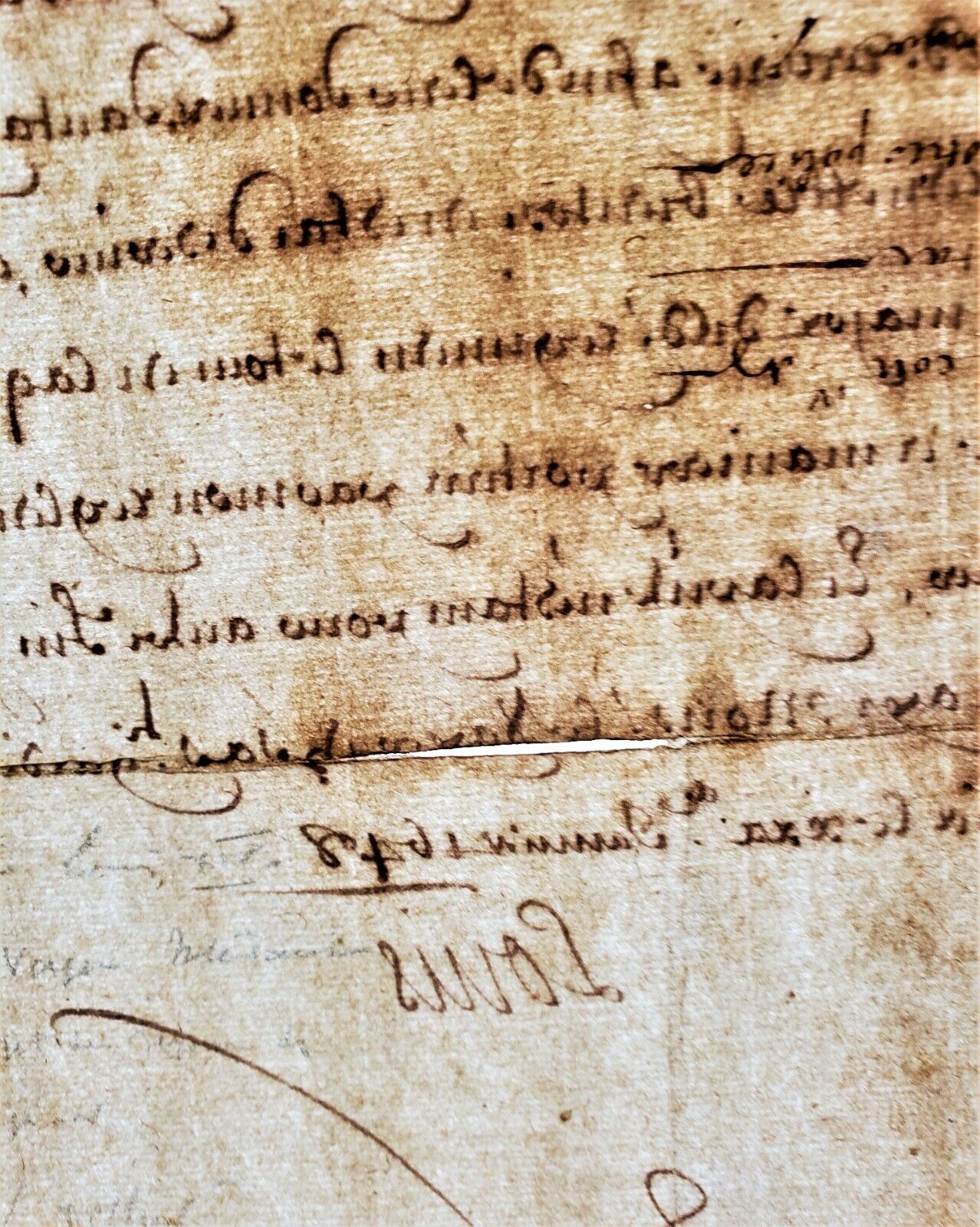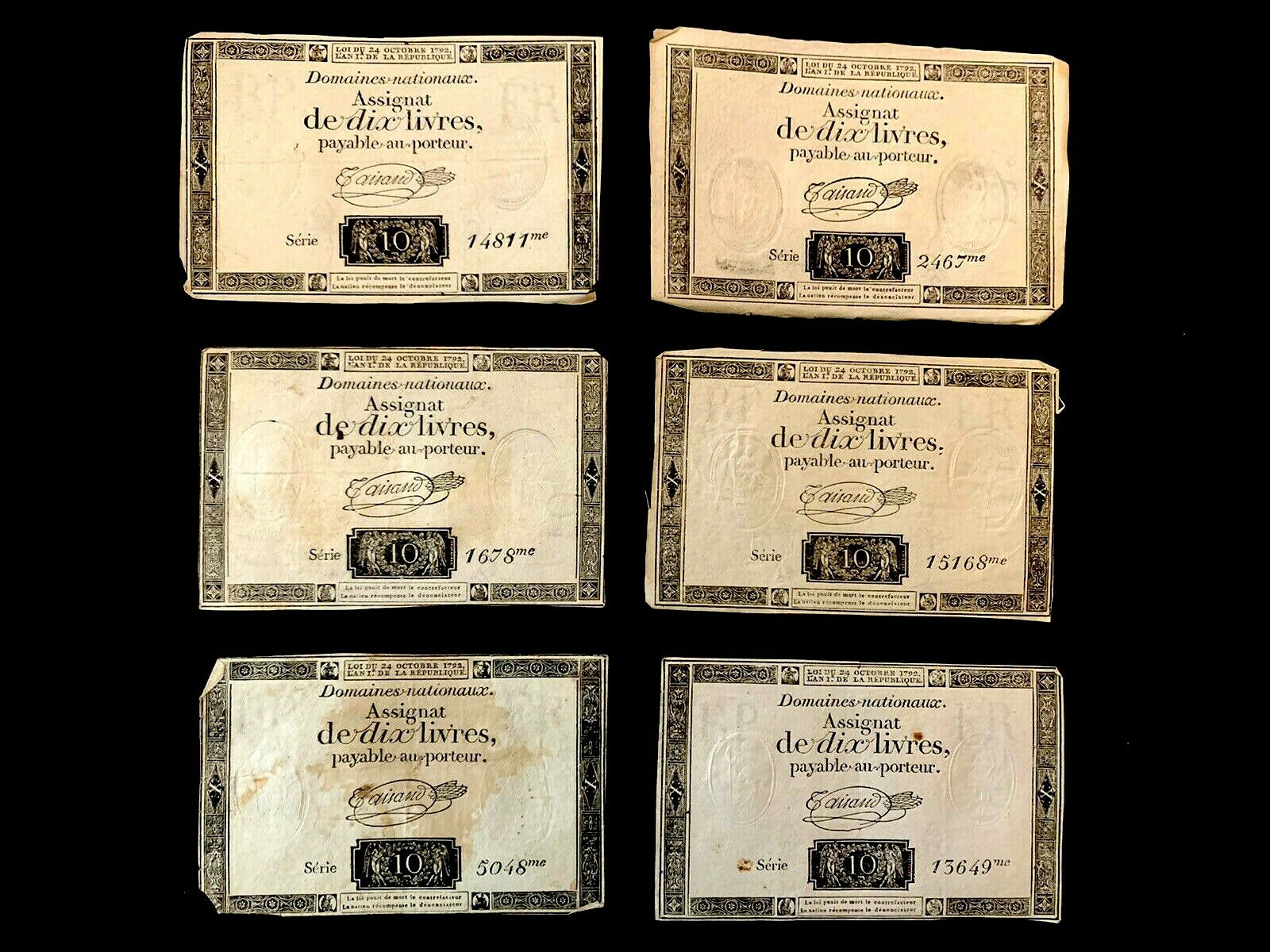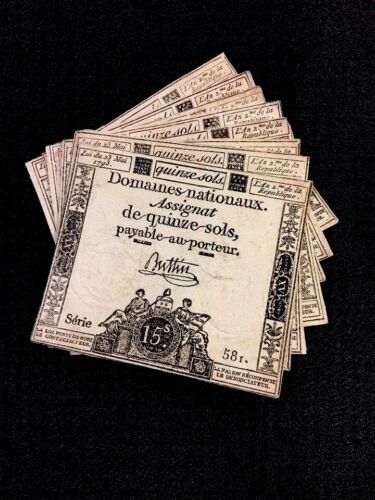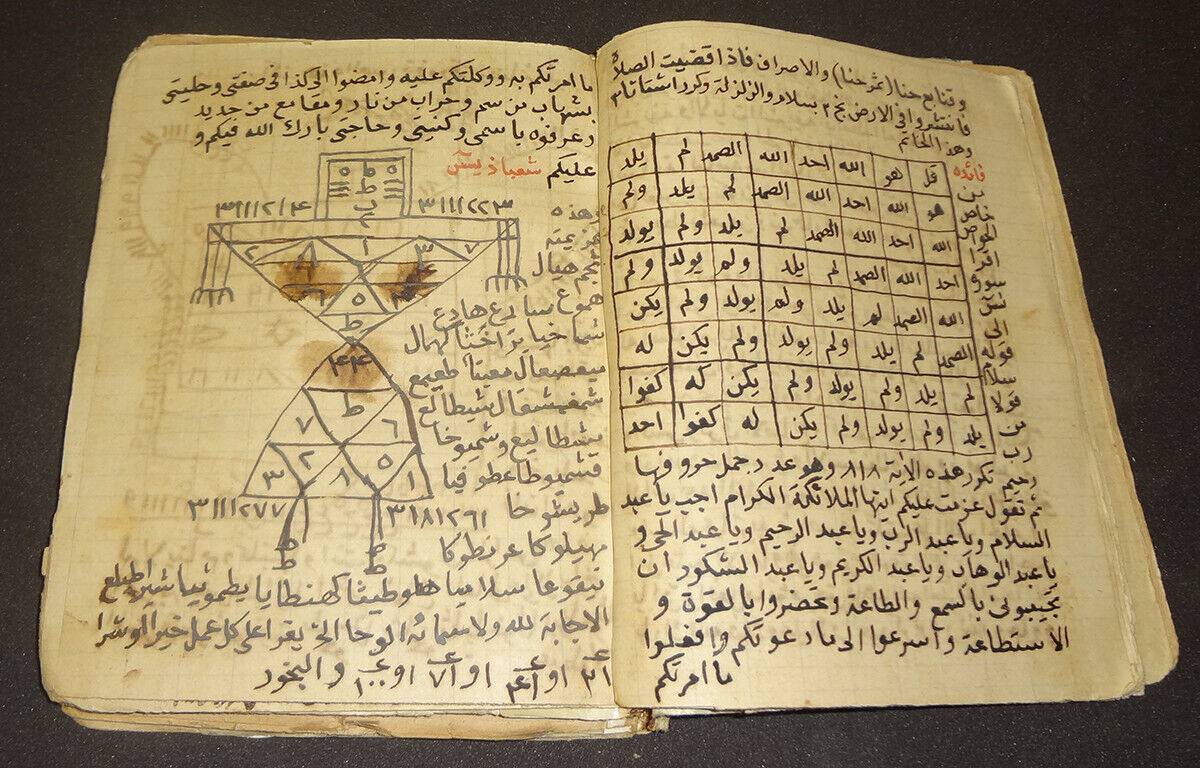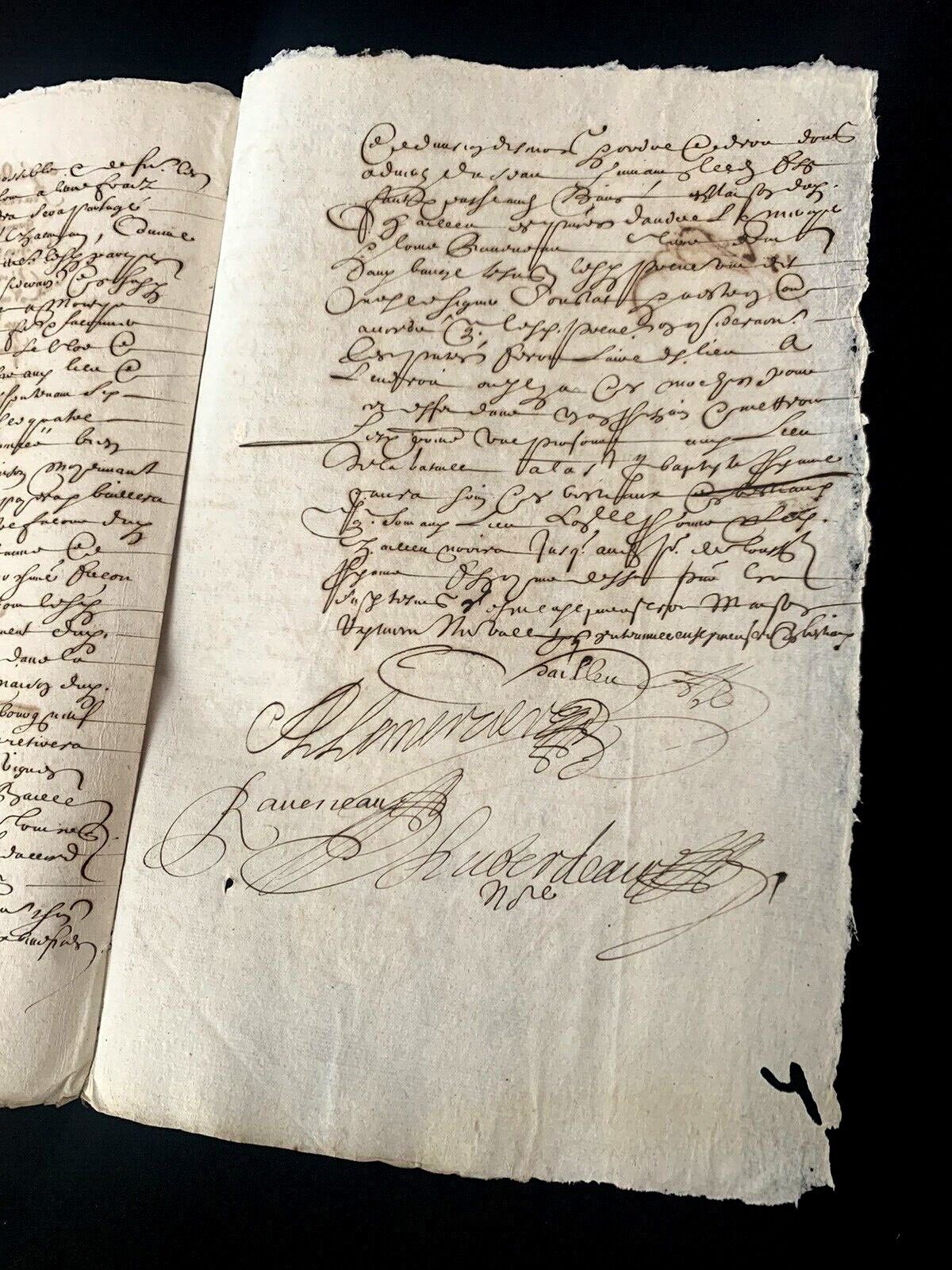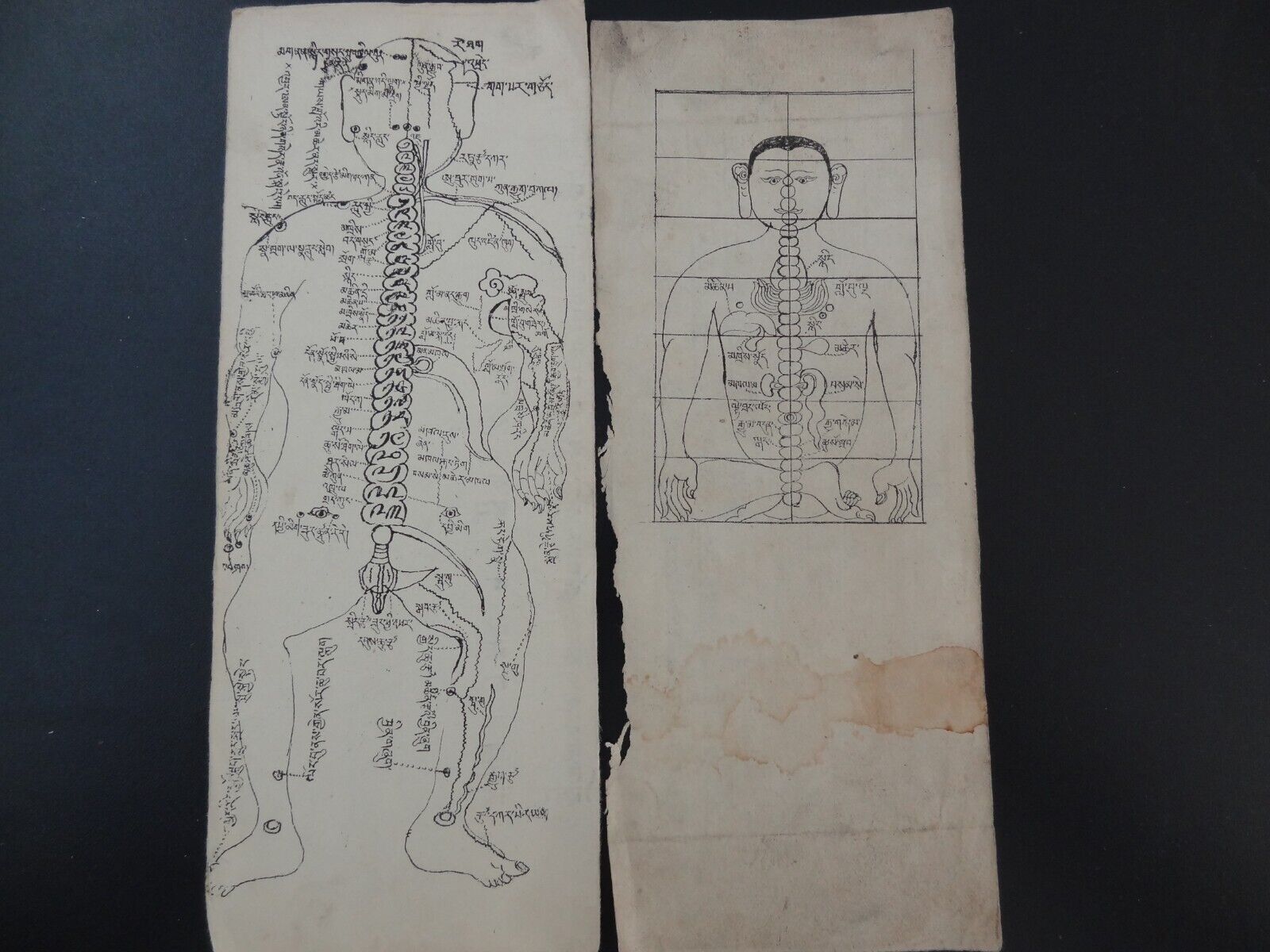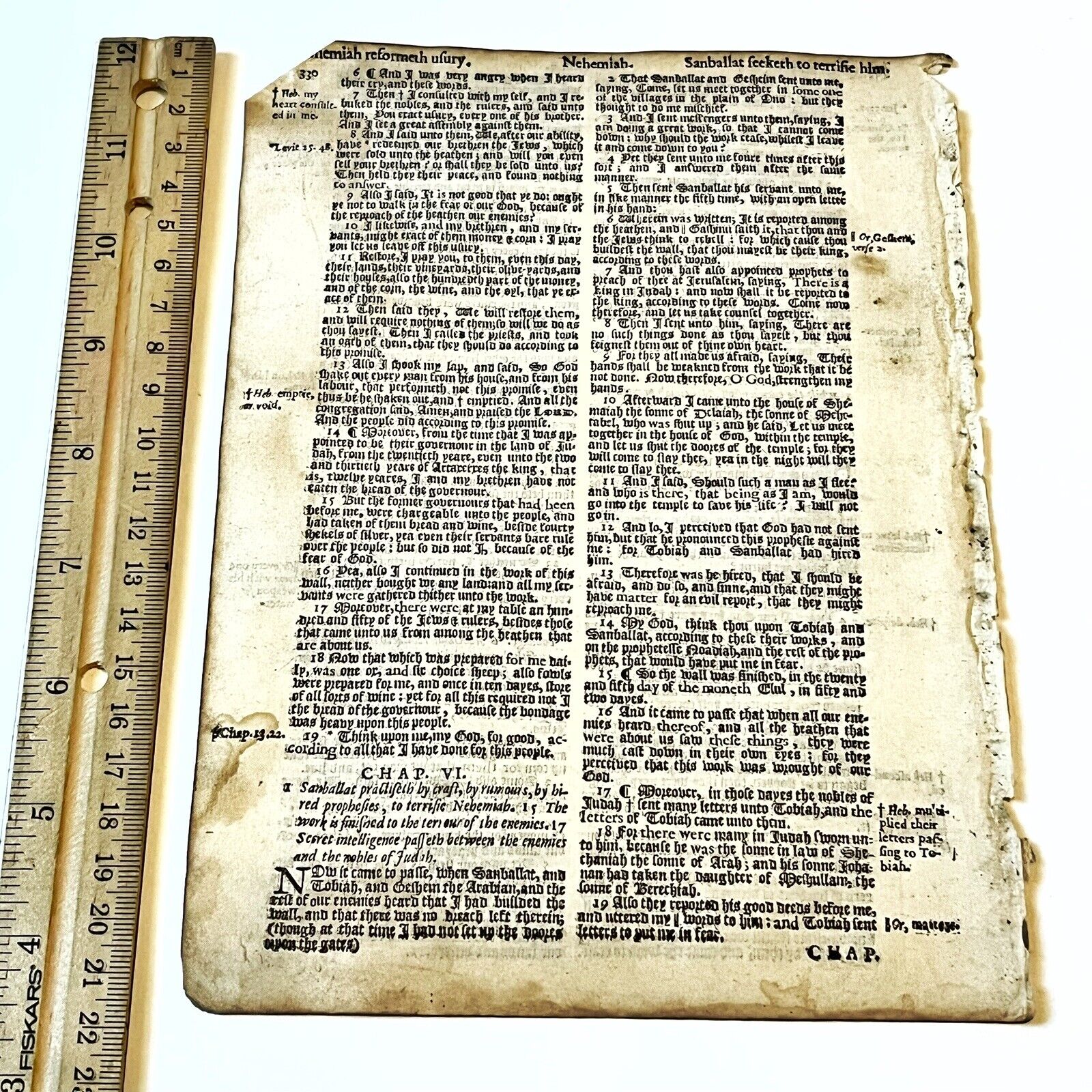-40%
KING LOUIS XIV LETTER TO RENE LE VAYER INTENDANT OF JUSTICE POLICE IN ARRAS 1648
$ 395.99
- Description
- Size Guide
Description
"KING LOUIS XIV OF FRANCE Letter to Rene Le Vayer, Councilor of State, Intendant of Justice, Police and Finance in Arras"Countersigned
by Michel le Tellier, the Secretary of State for Military and War in Paris on January 30, 1648
Size: 14" x 9.4" (37 cm x 24 cm), Signed and Watermarked
Michel (IV) Le Tellier, Marquis de Barbezieux, Lord of Chaville, Étang and Viroflay
, is a French statesman, Chancellor of France in 1677, born April 19, 1603 in Paris and died October 30, 1685 in the same town.
René Le Vayer -
King's Counselor, Lieutenant General in Le Mans and then Intendant of Justice, Police and Finance in Arras and Ordinary State Councilor.
During the early 17th century, the intendants’ posts in particular provinces were made permanent, and after 1635 an intendant had been appointed to virtually every province. By the 1630s the commissaires, or intendants, had begun to function as a kind of parallel administration in the provinces, thus enabling the crown to substitute its authority for that of the Gouverneur’s (provincial military commanders) and other local officials. By the mid-1640s the commissaires had become rivals of or had even substantively displaced the local authorities, particularly the treasurers functioning in each province.
The consequent resentment of the local officials was one of the factors in the series of uprisings known as the Fronde (1648–53), which in 1648 temporarily compelled Louis XIV to revoke the powers of all intendants except those in certain frontier provinces. This decision had no lasting effect, and intendants of justice, police, and finance were reestablished in 1653.
King Louis XIV of France
(5 September 1638 – 1 September 1715), authentic, autographed manuscript document dated April 26, 1694. King Louis XIV was well known as King Louis the Great
or the Sun King. He ruled as King from 1643 until his death - a tenure of over 72 years and the longest of monarchs in major countries in European history. After the death of his Chief Minister,
Cardinal Mazarin, Louis began his own personal rule of France. A champion of the system of absolute monarchical rule, much of his success was brought upon by eliminating
the remnants of feudalism and by inviting several members of the nobility to live at the Palace of Versailles, for which King Louis had moved his family and the court of government to in 1682.
The Royal Families of France remained at Versailles until the outbreak of the French Revolution in October of 1789. During Louis' reign, France became the leading power of the European
countries and participated in three major wars: the Franco-Dutch War, the War of the League of Augsburg and the War of the Spanish Succession. Louis and his wife
Maria Theresa of Spain
had six children, all for which only one survived to adulthood. Upon his death, he was succeeded by his five-year-old great-grandson, Louis XV. The Maison du Roi ("The King's Household")
was the royal household of the King of France. It comprised the military, domestic and religious entourage of the French royal family during the Ancient Regime and Bourbon.
